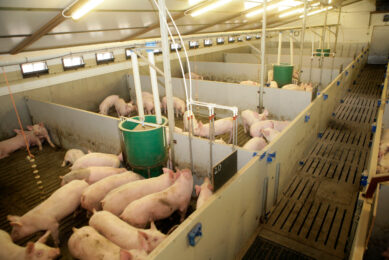The annual appraisal

John Gadd: “Don’t do the annual appraisal behind a desk. Choose a couple of comfortable chairs.”
This routine management exercise started 35 years ago in industry and commerce, and within the past ten years has ‘infected’ pig industries worldwide, especially among the larger units. I use that emotive word deliberately because everyone I have talked to hates them – both the interviewed and the interviewers. Years ago I myself was subjected to two of them which were uncomfortable, and as I wasn’t sure that I could have been quite as a bad as I had been painted for two years running, it led to part (but only part) of my decision to go off and work for myself.
That was 28 years ago, and since then this set me on course to try to find out from experts where my own interviews may have gone wrong. Was it mostly my fault or might it have been the interviewer’s? I’ve talked to pig stockpersons about what so puts them off the appraisal experience, and especially to personnel and sales managers of several industrial and retail companies, outside us in pigs, who have to do the necessary.
One was particularly kind, and when he retired let me borrow a staff training video of how to conduct an annual appraisal properly. This opened my eyes to how an employer should set about it with the minimum of upset to the employee, and at the same time enable the employer to gain valuable information.
Why the annual appraisal?
Benefits for the employee
To find out how they have done in the employer’s eyes. What chance could there be of their own advancement and what changes may be occurring in their workplace, and why? It also enables their job description to be reviewed if needed. These discussions can either be uplifting but sometimes, difficult for the employee, so a great deal of tact and understanding is needed from the appraiser.
Benefits for the appraiser
It helps him/her assess and record the employee’s progress, attitude and behaviour. Employees are an expensive and important part of the success of any pig unit and a caring appraiser will be able to keep a handle on this aspect of staff relations. Also, a well-conducted appraisal will inform the employer about any performance problems where instructional training and motivation may be needed.
So what makes a good appraisal session?
This is what I have picked up over the years. (As an aside, not that it matters now over the space of 30 years ago, the notes below showed me how deficient my two appraisals could have been!).
- Any new employee, as part of their induction process, must be told what an appraisal is. To help remove apprehension in a new intake, this should be done a few weeks before the time for when the first one arrives, say after the first six months for the newcomer. ‘Leg-pulling’ of the new member of the team from caustic forebodings from their colleagues who warn that they ‘have all been through it’ is quite common, so a quick assurance from the employer of what an appraisal is and why it is needed is wise.
- Choose a neutral venue – better out of the office altogether. Phone or secretarial interruptions are a pain and disturb the interview. Mobile phone contact is up to you, but switch it off if you possibly can. If the essential interruption is likely to be a long one, give him/her a copy of Pig Progress to read – do not leave them in limbo, as I was!
- Not behind a desk. Use a couple of comfortable chairs. Don’t stand up, pace about or fold your arms!
- In fact be friendly, smile, establish eye contact. Relax. Many farm appraisals are more like inquisitions. How short-sighted. How demotivating!
- Early on – ask the employee for their own self-assessment. This is a great ice-breaker.
- Then continue with the successes before dealing with any under-achievements. If the employee strongly disagrees with you, say you do take it on board and ask him to write out in his own time exactly what his views are and promise another talk soon to discuss them in detail.
- Never write notes during the interview – do this between them.
- Set both short term, say three months for new intakes, and long term (12 months) written performance goals. In commerce this document is jocularly called ‘The Death Warrant’ which brings a little ironic humour to lighten the proceedings!
- Use these goals on the ‘death warrant’ to review at the next appraisal. If not met – ask how you can help.
- Do not use appraisals to fix wage rises and promotions – best done at another time. Same with performance bonuses as they should be a team, not an individual effort – my subject next time.
[Source: Pig Progress Vol 30 nr 9, 2014]











